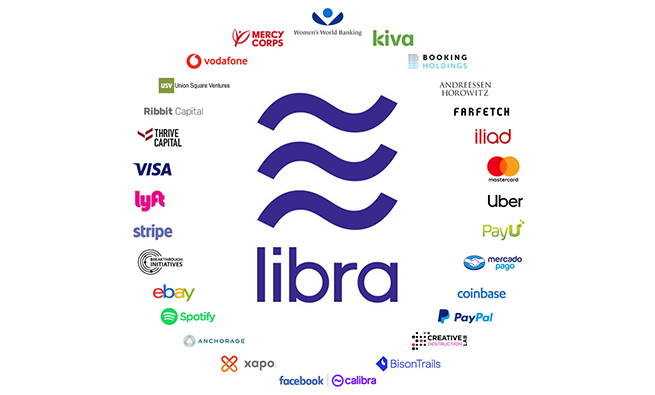Facebook cofounder Chris Hughes, who is a knowledgeable commentator, has called the plan “frightening.” In a June 21, 2019, piece titled “Libra coin would shift power into the wrong hands,” published in the Financial Times, Hughes explained, “If even modestly successful, Libra would hand over much of the control of monetary policy from central banks to these private companies, which also include Visa, Uber, and Vodafone. Inevitably, these companies will put their private interests—profits and influence—ahead of public ones.”
Hughes goes on to remind everyone that at the time Facebook was still only a college social network, the originator’s motto was “move fast and break things.” “Libra,” he speculates, “will disrupt and weaken nation states by enabling people to move out of unstable local currencies and into a currency dominated in dollars and euros and managed by corporations.” In the early coverage of the proposed plan, Hughes isn’t alone in this skepticism.
Facebook estimates that it will launch the program in early 2020. It’s currently working with 27 partners including Mastercard, Visa, PayPal, Uber, Lyft, eBay, Spotify, Calibra, Coinbase, Women’s World Banking, Kiva, Union Square Ventures, Andreessen Horowitz, and others. In its official white paper, the Libra Association hopes to have about 100 members by the time of the launch.

A FIELD OF RED FLAGS
A June 19, 2019, Associated Press (AP) piece offers an overview of the critical response to the Facebook initiative. Five writers from New York, Boston, Washington, D.C., and Paris put together an article titled “Facebook’s Currency Libra Faces Financial, Privacy Pushback”. French Finance Minister Bruno Le Maire, who was quoted in the article, went on the air just hours after the announcement insisting that only governments can issue sovereign currencies and that, “We will demand guarantees that such transactions cannot be diverted, for example for financing terrorism.” The comments reflect caution about Facebook’s power and its poor record of managing privacy. Le Maire asked central bank chiefs from the G7 countries to create a report by mid-July 2019 that would establish “guarantees that we must set...to assure that there are no risks of illicit financing or for the consumer.”
Financial industries are more carefully regulated than internet companies in the United States, and the AP writers point to the warning of Karen Shaw Petrou, managing partner of Federal Financial Analytics in Washington, D.C.: “Companies creating Libra are in for a ‘rude awakening’ if they expect the same model of light regulation.”
Nicholas Weaver, a senior researcher at the International Computer Science Institute, told the AP reporters, “I am shocked they have decided to go ahead.” His reasons center on Facebook’s privacy failures in the past, most dramatically in the Cambridge Analytica scandal last year. Libra, like other digital currencies, requires pseudo-anonymous transactions, and there is the potential for money laundering and fraud if the controls put in place are weak. With cryptocurrencies, the blockchain-encrypted ledgers show the transaction amounts, but the participants can be anonymous. According to the AP article, Facebook insists it will comply “with all existing financial regulations, though it has not offered many details.”
Other early critics have pointed out that the Libra blockchain ledger isn’t designed to be decentralized like other cryptocurrencies, and that it doesn’t work like bitcoin or its numerous imitators.
THE “UNBANKED”
To be fair, Libra isn’t the first currency of its kind, and Facebook’s focus on developing countries could provide a substantial benefit for those who don’t have bank accounts—the “1.7 billion adults globally remain[ing] outside of the financial system with no access to a traditional bank”—according to the Libra Association’s white paper. For now, though, there are many red flags already flying over the 12-page white paper. The problems Libra is designed to solve and the way it will operate are presented in clear, nontechnical prose, and the white paper deserves some attention given the possible upheaval it might create. There is also a more challenging paper detailing the workings of the Libra blockchain.
The stated goal for Libra is: “A stable currency built on a secure and stable open-source blockchain, backed by a reserve of real assets, and governed by an independent association. Our hope is to create more access to better, cheaper, and open financial services—no matter who you are, where you live, what you do, or how much you have.” The currency isn’t designed to be a speculative investment, but rather digital money for paying for online and offline services. In fact, Facebook has promised that each of the partners will provide $10 million to guarantee full asset backing when the launch arrives.
The Libra Association, a not-for-profit membership organization with headquarters in Geneva, Switzerland, has founding members from seven industries: payments, technology and marketplaces, telecommunications, blockchain, venture capital, nonprofit and multilateral organizations, and academic institutions. When the Libra network launches, Facebook will have “the same commitments, privileges, and financial obligations as any other Founding Member.”
Facebook has a little more than six months to sell the regulators and the public, and to bullet-proof Libra’s modified blockchain. For now, Libra has launched the libra.org website as a home. It plans to continue updating the association’s progress, and the call is still open for those interested in becoming founding members or applying for social impact grants.



